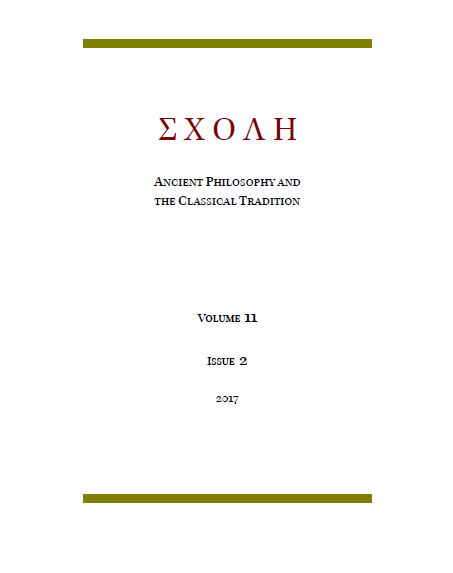TRUTH AND MODES OF COGNITION IN BOETHIUS: A NEOPLATONIC APPROACH
TRUTH AND MODES OF COGNITION IN BOETHIUS: A NEOPLATONIC APPROACH
Author(s): José María Zamora CalvoSubject(s): Ancient Philosphy
Published by: Новосибирский государственный университет
Keywords: Boethius; truth; modes of cognition; consolation; Neoplatonism;
Summary/Abstract: Boethius does not accept the principle of realism that considers truth as the adaptation – or adequation – of the subject to the knowable object, and instead defends that knowledge should be studied by relating it to the capacity of the cognoscente subject. Thus, truth is relative to the faculty or level of knowledge in which we stand, since each faculty – each level of knowledge – has its own object: the material figure for the senses, the figure without matter for the imagination, the universal for reason and the simple form for intelligence. But this epistemological relativism is moderate, precisely because of its hierarchical character. Therefore, although in a sense truth is manifold, the perfect truth, proper to divine knowledge, includes and surpasses all others. In order to cement the architecture of this system of relativisation of knowledge, Boethius starts from a Neoplatonic interpretation of the simile of the line of the Republic (VI.510a-b) and Plato's Timaeus, but not completely tied to it. The beings endowed with knowledge are ordered according to the Neoplatonic hierarchy of cosmic realities.
Journal: ΣΧΟΛΗ. Философское антиковедение и классическая традиция
- Issue Year: XI/2017
- Issue No: 2
- Page Range: 354-371
- Page Count: 18
- Language: English

